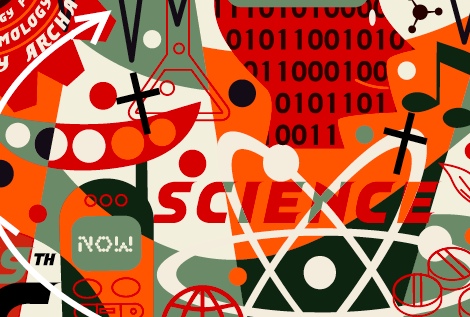 I was never much of a science student. I remember being careful with a Bunsen burner, undertaking experiments with chemicals in pipettes in the laboratory and trying to learn by heart the periodic table. But the science of my school days was for the students who could understand strange abstractions and pH balances and problem solving. Maths, physics and chemistry were another language to me and my excuse was that my brain was simply not wired to receive and sort this sort of information.
I was never much of a science student. I remember being careful with a Bunsen burner, undertaking experiments with chemicals in pipettes in the laboratory and trying to learn by heart the periodic table. But the science of my school days was for the students who could understand strange abstractions and pH balances and problem solving. Maths, physics and chemistry were another language to me and my excuse was that my brain was simply not wired to receive and sort this sort of information.
My friends who could 'do the maths' are now engineers, doctors and scientists. Those same friends also believe fervently in God as the driving force of all existence. The rational- logical-critical template for intellectual investigation has not diminished their beyond-rational, imaginative, luminous faith. They believe that religion and science do not cancel each other out in a crazy cosmic equation that negates the palette of divinity that gives us soul.
As a child I believed in the Genesis stories of creation, with God working hard for six days and resting on the seventh. As an adult I still believe in these first allegories, but can happily accommodate a new chronology of millions of years that does not diminish the truth that God saw his creation and it was good.
Science and religion have warred in the past. Galileo was found by the Church to be heretical when he advanced the Copernican view that the earth rotated around the sun, and the Church has only recently apologised - four hundred years later! Science can make discoveries that can unleash great potential - and great harm- so it is imperative that ethical and moral considerations balance the desire to go beyond the known or to experiment recklessly.
Newly beatified Pope John Paul II wrote that, 'Science can purify religion from error and superstition; religion can purify science from idolatry and false absolutes. Each can draw the other into the wider world, a world in which both can flourish ... We need each other to be what we must be, what we are called to be.'
The human being is composed of both internal and external selves. The internal self is that of the soul and spirit, an immeasurable realm. The external self is the body and brain which can be subjected to all sorts of empirical measurements. Both are integral to the human condition because they operate in different ways; they both offer answers to the different questions that beset us. Religion offers us the soul, unprovable meaning and life everlasting. Science offers us the theory and provable results and life in the here and now. Science can test the material- the rock, the star, the cell. Religion can test the immaterial - truth, beauty, good and evil.
The advances in science are to be lauded, as are those practitioners who become the frontiersmen of new knowledge. Religion and science can co-exist. Indeed they must, if human civilisation is to progress.
Wondrous new scientific discoveries do not undermine my belief. Instead they make me marvel at humanity's intellectual capability. But regardless of how much science reveals us to ourselves, for example, in mapping the human genome, it will ultimately discover that there is no gene for God.